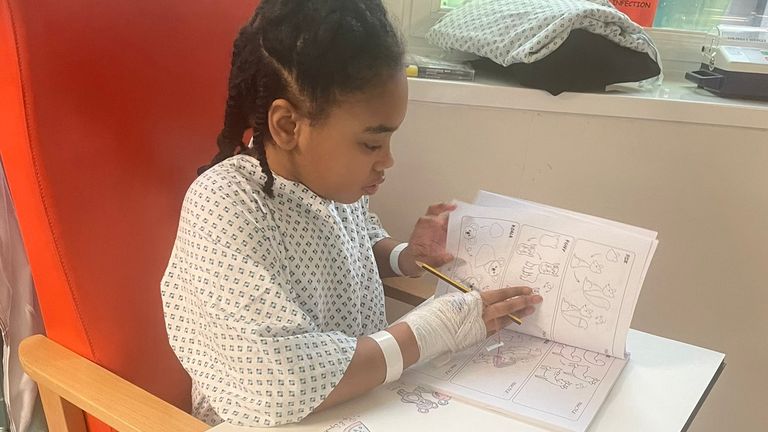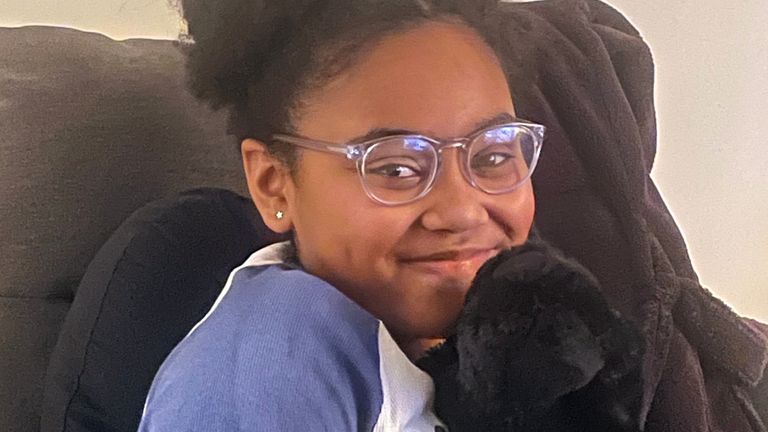An 11-year-old girl was seen 30 times by medics over the course of three years before she was diagnosed with a brain tumour.
Tia Gordon, from Northampton, was told she was suffering from migraines and stomach bugs before she was admitted to hospital as an emergency when her condition started to affect her balance and ability to walk.
She underwent an emergency scan, which revealed she had a 3.5cm tumour on her brain.
Her mother, Imogen Darby, said Tia had been taken to GPs, A&E and was assessed by NHS 111 and also had her glasses prescription changed four times before the tumour was spotted.
She said: “Over more than three years, I took Tia to doctors, she was refused MRIs, she was refused to be seen by emergency paediatrics, I called 111, I went to A&E, she had her glasses changed four times, she was given medication and she had a consultant, but it took for her to be unable to walk for her to get the care she needed.”
Ms Darby first noticed Tia’s symptoms during the COVID lockdown in March 2020 when her daughter started being sick.
She was sick every few months, then monthly, then more frequently.
In the few months before the diagnosis, Tia was taken to the GP around 10 times and her mother called NHS 111 around three times.
When she took her to A&E, Ms Darby was told she had a stomach bug and to “kind of just leave her to it”.
But Tia then started “holding her neck funny”. Doctors, however, said it was stiff “from sleeping on it”.
By that point, Ms Darby had managed to get a paediatrics appointment and explained about Tia’s neck. She was referred for physio.
Ms Darby felt something was still wrong with the way Tia was holding her neck, but a consultant said it would be months for an MRI for “peace of mind”.
Tia’s condition began to deteriorate, with her being sick most mornings and vomiting every day between November 2023 to January 2024.
In the few days before the diagnosis, Tia’s school phoned to say she was holding her neck strangely and was a bit off balance.
She was taken to Northampton General hospital, where she was unable to walk in a straight line.
A CT scan revealed Tia’s tumour, which is a pilocytic astrocytoma – the most common type of childhood brain tumour. An ambulance was called to take her to Queen’s Medical Centre in Nottingham.
Tia was operated on over a 10-hour period and the benign tumour was removed.
“It was quite a horrendous day,” Ms Darby said. “From the surgery, they managed to get 96% of it out.”
Tia will have an MRI scan every three months for the next five years and is undergoing physiotherapy, as well as having regular meetings with neurologists.
Meanwhile, Tia is keen to get back to her activities.
“We all call her Dr Doolittle, she absolutely loves anything to do with animals,” Ms Darby said.
Cameron Miller, director of external affairs and strategy at the Brain Tumour Charity, said: “For many brain tumour patients, it simply takes too long to be diagnosed – and this is one of the reasons why we’re calling for a National Brain Tumour Strategy.”



